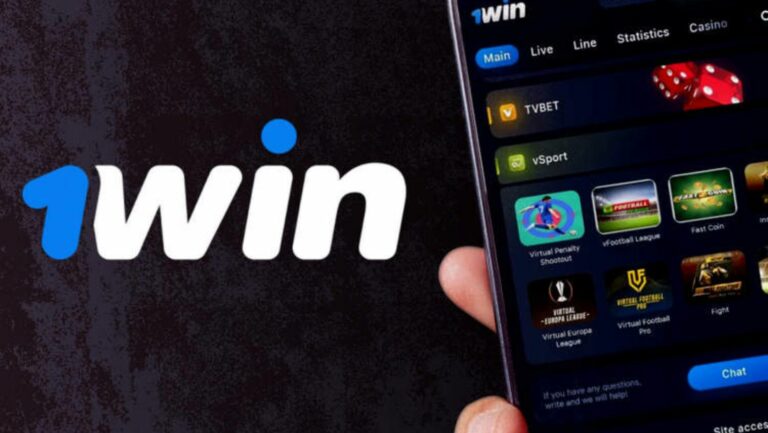With the recent news about Pattern, an ecommerce startup securing $225 million in funding and their CEO’s statement that e-commerce accelerators ‘will win the day’ over aggregators, there has been a lot of discussion in the startup world.
Pattern is a leading e-commerce platform which makes it faster and easier for entrepreneurs to bring their products to market and helps them start their online stores. With its state-of-the-art infrastructure and tools, entrepreneurs can get up and running quickly without any complex coding or development knowledge. Pattern’s CEO believes that strategic partnership with well-known entities will enable them to maximise potential success in the sector while continuously improving their offerings as needed.
But what do other startups within the ecommerce space think about Pattern? Does their optimism about a new technology stack up? In this article we’ll explore some of the opinions from other ecommerce startups on Pattern’s position about the latest developments from its competitors.
Pattern bags $225M; CEO says e-commerce accelerators ‘will win the day’ over aggregators
Pattern is a platform that connects ecommerce startups to customers while providing them the necessary tools to succeed.
Pattern has recently secured a Series C funding of $225 Million which puts them firmly on the map as one of the leading ecommerce accelerators.
In this article, we will take a closer look at Pattern and what other ecommerce startups have to say about it.
What is Pattern?
Pattern is a consumer-focused ecommerce startup that offers an online shopping centre and an array of tools and services to streamline the ecommerce experience. It was founded in 2020 by former Stitch Fix CEO John Mullins and is now backed by venture capital firm Canaan Partners. Its platform promises to provide users access to various merchandise and services, including curated content, product discovery, payment integration and analytics.
The company has experienced rapid growth since its launch, raising $225 million in Series B funding from Canaan in late 2021. The funding will allow the company to further develop its platform as well as expand its team with new hires for data science and engineering roles.
At the time of this news announcement, John Mullins commented, “We’re going to bet on commerce accelerators like Pattern over aggregators.” This indicates his belief that Pattern’s direct-to-consumer model ultimately gives merchants more control over their businesses – from pricing to fulfilment model – which can lead to greater success than selling through an aggregator such as Amazon or eBay. Moreover, Pattern’s approach allows merchants to create unique experiences tailored specifically for their customers while avoiding any unnecessary fees or long wait times associated with third-party marketplaces.
Overall, Pattern seeks to revolutionise online shopping by creating intuitive experiences empowering shoppers and merchants alike. With additional funding behind them, it’s likely that retailers who consider using this platform will soon begin seeing tangible benefits for their business due to the increased efficiency associated with using such a tool-rich ecommerce accelerator such as Pattern.
What services does Pattern provide?
Pattern is an ecommerce startup developing a platform for businesses to create and manage online stores. The company enables merchants to build and customise fully featured websites with integrated payments, inventory management, analytics and marketing tools.
Pattern also provides extensive apparel-related products, including tents, bags and protective gear. Additionally, Pattern offers services such as fulfilment solutions to optimise delivery times of products, customer support solutions to enable merchants to communicate with customers quickly and effectively, mobile store building capabilities for retailers wanting to target consumers using smartphones or tablets, as well as loyalty programs that enable customers to be rewarded for purchases or referrals.
Pattern’s Funding
Pattern, a consumer-facing e-commerce company, has recently announced they have secured $225 million in Series C funding. This brings their total funding to $350 million.
CEO of Pattern, Alex Douzet, believes that e-commerce accelerators have the potential to be successful and will overtake aggregators. This news has attracted interest from other startups in the ecommerce space.
Let’s explore what other startups think of the funding and news.
How much funding has Pattern received?
Pattern, a financial technology-oriented ecommerce startup, has successfully raised funding.
Pattern is a one-stop shop for shoppers who want to purchase products from retailers using secure payments and streamlined checkout processes. As of April 2021, Pattern had raised more than $225 million in funding from venture capital firms such as Sequoia Capital, Bessemer Venture Partners, B Capital Group, Index Ventures and Khosla Ventures.
This most recent round brings the total amount of money gained by the company to over $265 million since its launch in 2018. The funding will help accelerate the development of Pattern’s technology platform and enable it to expand its operations across international markets.
The CEO, Amisha Gandhi believes this latest cash injection will further signal the strength of Pattern’s market positioning compared to other providers, including e-commerce platforms and aggregators. The new injection will also enable the company to focus on providing customers with even greater convenience and improved customer service.
Who are Pattern’s investors?
Pattern, a Los Angeles-based ecommerce company, recently raised $225 million in a Series C funding round. Durable Capital Partners LP led the round. It included participation by other venture capital firms such as Goldman Sachs Growth Equity (GS Growth), Prime Universities, Maveron Capital, Rainfall Ventures and BrandFounders.
Pattern also opened up its investor base for the first time to high profile strategic investors such as MacNaughton Holdings group, the Flag of Capital and Korea Investment Partners (KIP).
The financing will help Pattern further develop its proprietary platform for small businesses, making it easier than ever to manage their inventory, process payments quickly, and ship orders. In addition to the capital raised from this round of funding from venture capitalists and strategics investors alike. CEO Jyothi Rajesh noted that “the strategic investors believe in our mission to enable more small business owners around the world to succeed—their support will be invaluable in achieving that ambition.”
Pattern’s CEO’s Vision
Pattern’s CEO, Alan Tisch, recently announced the company’s $225M funding and shared his vision of how ecommerce accelerators will outpace aggregators in the future.
In today’s article, we’ll continue to explore Tisch’s comments and what other ecommerce startups say about his vision.

What is the CEO’s vision for Pattern?
Pattern CEO Kevin Warsh has emphasised his vision of Pattern being a unique ecommerce company focused on accelerating the digital transformation of various industries, rather than simply creating an aggregator of existing products and services. Speaking to the press following Pattern’s $225 million Series B round, Warsh said “We believe that bigger isn’t necessarily better when it comes to ecommerce; stronger and faster is what counts. We want to empower startups and traditional retailers around the world by connecting them directly with customers, streamlining processes, and helping them get to market faster while providing a next-generation shopping experience.”
We’re not just looking for customers but partners who will grow with us as we continually evolve our technology. That’s why it’s essential for our investors and customers that we focus on providing real value within their respective industries and accelerate innovation more effectively – because these partnerships are truly what will give us sustained growth.”
In short, Pattern seeks to create strategic partnerships with companies to optimise their outcomes through connected experiences in multiple verticals.
What does the CEO think of e-commerce accelerators?
At the most recent round of funding, Pattern’s ambitious CEO, David Siminoff, has openly espoused the superiority of e-commerce accelerators over the traditional aggregators that have long dominated the market. He believes that non-traditional approaches like Pattern’s store-less accelerator model will have a greater impact on consumers in the long run. The USD 225M investment affirms this belief, much to Siminoff’s delight.
“E-commerce accelerators are faster and more cost effective than existing store models and provide an opportunity to reach a larger audience” he argues. His vision is to build an online platform that can link directly with established brands, transforming them into viable e-commerce stores on its platform at no extra cost for merchants or consumers. The theoretical benefit would be substantial savings compared to traditional methods and providing access to a wider range of products for shoppers.
Siminoff believes that by creating virtual storefronts and utilising data from brand specialists and customer feedback, shops like Pattern will provide customers with unparalleled convenience while giving growing businesses a chance to get off the ground quickly and cheaply without having to lay out huge sums of cash for real estate overheads or labour costs upfront -at least until they are on solid footing enough for their operations. Established brands could also benefit from this platform technology with shorter paths between launch and profits conversion when launching new products & associated campaigns. All in all, Pattern’s vision is an intriguing and perhaps promising one. It remains uncertain how successful they can be in playing David against the Goliaths of existing aggregator & retailing giants. However, if they succeed, we may see more virtual stores online soon!
Other Startups’ Opinions of Pattern
After Pattern, the e-commerce startup, raised $225 million in their latest funding round, the CEO declared that e-commerce accelerators will come out on top instead of aggregators. As a result, other ecommerce startups have been weighing in on the potential for success for Pattern and other e-commerce accelerators.
Here, we will look into what other ecommerce startups say about Pattern.
What do other ecommerce startups think of Pattern?
The recent funding round of $225M for ecommerce startup Pattern sparked excitement among the team members and investors, and within the startup community as a whole. Through this investment, Pattern has demonstrated its success and set an example for other startups.
In response to the news, many ecommerce startups have voiced their opinions on the platform and its future in the industry. Many see it as an innovative step in bringing more personalization and convenience to shoppers by offering them tailored product recommendations that fit their preferences. This approach is particularly useful for small businesses looking for more ways to stand out from larger competitors in the market. Additionally, Pattern’s ability to give merchants insight into customer behaviour provides valuable data for businesses to make more informed decisions about product placements, marketing campaigns and other aspects of running an ecommerce store.
There have also been discussions around Pattern’s view on ecommerce accelerators vs aggregators. The CEO has asserted that these accelerators will ultimately be more successful than larger aggregators when providing specialised services to customers. In contrast to traditional aggregators which rely heavily on existing data points to make predictions, these new platforms focus on data-driven insights which create a much more personalised shopping experience – a key component that many retailers are looking for today when it comes to their customer experiences. Ultimately, this level of customization draws attention from other startups looking at entering the same space and trying to understand what sets Pattern apart from its competitors – accelerating their own development to capitalise on potential opportunities in this burgeoning space.

What are the pros and cons of working with Pattern?
Pattern, an e-commerce startup, has recently raised $225M in funding and its CEO believes that e-commerce accelerators will be more successful than marketplaces. This new funding has sparked a discussion among a variety of startup founders and experts regarding the pros and cons of working with Pattern. According to multiple valuable testimonies across different fields, the consensus is that the pros greatly outweigh the cons when it comes to working with Pattern.
Pros:
1. Onboarding process is easy and they are staffed with knowledgeable people who provide helpful advice during the onboarding process.
2. They offer comprehensive support services, such as product listing advice, monetization strategies, user engagement strategies, and customer support optimization tactics.
3. They focus on incentivizing quality content above all else, creating a great ecosystem for merchants and customers.
4. Their ad discovery engine is one of their greatest assets since it allows customers to quickly find products similar to what they’re looking for through reliable sources like comparison sites or influencers from various social networks.
5. They have built trust among users with their secure payments system which includes PayPal and credit/debit card options for shoppers’ convenience.
6. They prioritize engaging UI/UX design principles, which gives shoppers and merchants an enjoyable user experience when navigating the marketplace or transacting via the checkout page.
7. They provide a platform that offers scaling opportunities that are difficult to achieve through traditional mediums, making them a great choice for startups looking for faster growth potential, especially during launch times when resources are limited in supply.
Cons:
1. They charge slightly high fees compared other aggregator models but this cost can be justified as a result of all the benefits associated with working with Pattern such as better customer experience, maximum scalability etc.
2. The platform may not be suitable nor designed optimally for certain products like electronics due to its primary focus on fashion apparel. As a result, sellers in this category may have difficulty creating listings or filtering out relevant results from search engines.





